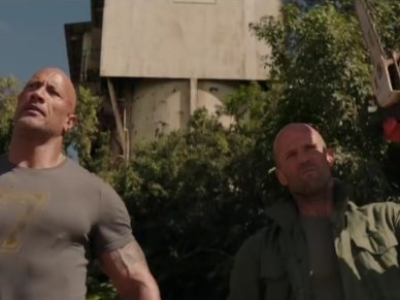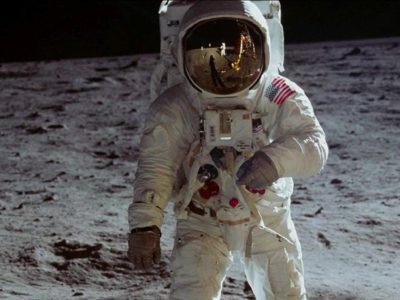The Unbreakable Soul of Modern Comic Book Movies
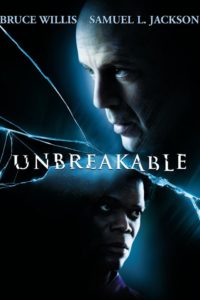 It’s hard to imagine a time without comic book movies, but in the late 1990s, the genre was out of favor in Hollywood. The then-latest Batman film (Batman & Robin) was a disaster, both for the studio and the character. Efforts to resurrect Superman were met with strange interpretations and development hell. And Marvel Entertainment was in the middle of a bankruptcy and restructuring.
It’s hard to imagine a time without comic book movies, but in the late 1990s, the genre was out of favor in Hollywood. The then-latest Batman film (Batman & Robin) was a disaster, both for the studio and the character. Efforts to resurrect Superman were met with strange interpretations and development hell. And Marvel Entertainment was in the middle of a bankruptcy and restructuring.
Today, the comic book genre is a superfluous sector of film. It seems like not a year goes by without several comic book adaptations hitting the big screen. The major movie studios have caught on that comic books offer a rich history of compelling stories and characters. For years they had been written off as junk for the mind. In 2000, the first X-Men film reinvigorated the genre by really calling back to the source material and understanding the comic’s thematic underpinnings. Director Bryan Singer gave humanity to inhuman characters and made us pay attention. The first Spider-Man film, released two years later, solidified the genre’s grip in the world of film and pop culture.
However, there was another film that was released in 2000 that also made a significant mark on how we view comic book movies. If X-Men was the impetus for this current comic book film trend, and Spider-Man solidified it, Unbreakable gave it a soul.
SPOILERS AHEAD!
Fresh off the wonderful The Sixth Sense, writer/director M. Night Shyamalan brought his Hitchcockian sensibilities to the topic of comic books. Unbreakable is as unconventional a superhero film as there ever was (at least at the time). Shyamalan treated the material as realistically as possible. Many makers of comic book and superhero fantasy have taken Shyamalan’s more realistic approach in the years that followed – including Christopher Nolan’s Dark Knight Trilogy.
Unbreakable has some outstanding performances, particularly from the two principles. This is probably among Bruce Willis’ best. His David is melancholic, with regret seemingly pouring from his eyes. Likewise, Samuel L. Jackson gives one of his most subdued performances as a man desperate to find meaning in his own tortured life. This is one of James Newton Howard’s best musical scores. Howard excels at evoking emotion from his music, and the score to Unbreakable packs an emotional punch. It travels the gamut of being wistful, creepy, eerie and triumphant.
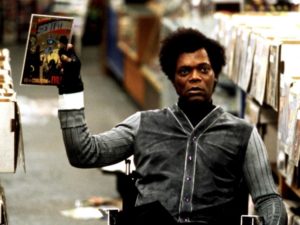 What makes this film exceptional is Shyamalan’s complete control of everything in the frame, using it to leave little nuggets of setup to move the story forward. Many of the shots, especially the visions David has when he touches guilty people, are done from a high corner in the room, just like a security camera. It evokes the feeling of authority and subconsciously reinforces David’s vocation as a security guard. Other shots look like they popped out of the pages of a comic book.
What makes this film exceptional is Shyamalan’s complete control of everything in the frame, using it to leave little nuggets of setup to move the story forward. Many of the shots, especially the visions David has when he touches guilty people, are done from a high corner in the room, just like a security camera. It evokes the feeling of authority and subconsciously reinforces David’s vocation as a security guard. Other shots look like they popped out of the pages of a comic book.
The setup/payoff for the visuals is wonderful. When David emerges from the pool after being pushed by a criminal, we don’t see his triumphant stance as the hero. We see it second-hand when David pushed the newspaper containing the artist rendering of the “hero” to his son Joseph. It makes for a far better reveal and payoff – adding mystery and emotional impact to the scene.
However, sometimes Shyamalan went a bit too far with his framing, making the shot at times unbearable to watch. The case-in-point is the opening sequence on the train, with David obscured through the seats in front of him. It seemed like something an unproven film student would do to make his movie stand out and “look cool.”
Unbreakable is definitely a slow burn, and perhaps that is to its detriment. This is probably the first example of Shyamalan’s notorious overindulgence. Many of the shots could have been trimmed down considerably. Regardless of the flaws, it’s the greatest strength is its subtext. Raised as a Hindu in his youth but educated in Christian parochial schools in the United States, Shyamalan’s films contain a lot of Christian iconography and themes.
“Train up a child in the way he should go; even when he is old he will not depart from it.” Proverbs 22:6
The first point I found is personified by the relationship between David and his son. When Joseph is presented with the idea that his dad might be an actual superhero, he wants so desperately to believe it – almost to the point of firing a gun at David to prove it. At first, David seems very disinterested in being anyone’s hero, much less his son’s. He wants David to be the strong father he needs – to be his hero. David’s embrace of his newfound powers causes the bond between him and Joseph to grow considerably. David realizes he’s also a hero to his son.
Sons look up to their fathers almost instinctively. It is why fathers are so important. They teach boys how to be men – instilling discipline and strength in them. We all want a good father, even if our earthly father may not be the best example. Fortunate for us that we have a Heavenly Father who teaches us to be holy if we only humble ourselves enough to listen.
“For we are God’s handiwork, created in Christ Jesus to do good works, which God prepared in advance for us to do.” Ephesians 2:10
Destiny and purpose are two ideas that are inextricably linked to Unbreakable. David struggles with his place in the world, coasting through life until a revelation is brought to him. The main arc f the plot is David’s gradual embrace of his abilities and purpose. Many people share David’s struggle with finding their purpose in life. In fact, many characters in the Bible struggled with that notion. But God has fashioned each and every one of us with talents and abilities to use for His glory. There is indeed a purpose to every life, no matter how insignificant we may believe ourselves to be.
“Now that we know who you are, I know who I am.”
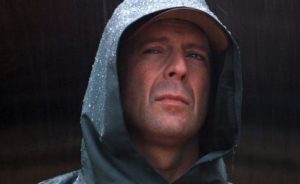 Lastly, the theme represented by Elijah Price’s story arc is one of moral choice. In typical Shyamalan fashion, Elijah was revealed at the end of the film to be the arch-villain to David’s hero – a brilliant plot twist. Elijah seemed strangely content with his destiny of doing evil. However, that was a sign of Elijah’s insanity, his break from reality. Though Elijah rightfully believed that there was some truth to the idea of comic book heroes, he took the idea too far and linked his destiny with a skewed purpose he believed to be inevitable. The truth is that Elijah was not bound by destiny to do bad things. He chose, even through a twisted understanding.
Lastly, the theme represented by Elijah Price’s story arc is one of moral choice. In typical Shyamalan fashion, Elijah was revealed at the end of the film to be the arch-villain to David’s hero – a brilliant plot twist. Elijah seemed strangely content with his destiny of doing evil. However, that was a sign of Elijah’s insanity, his break from reality. Though Elijah rightfully believed that there was some truth to the idea of comic book heroes, he took the idea too far and linked his destiny with a skewed purpose he believed to be inevitable. The truth is that Elijah was not bound by destiny to do bad things. He chose, even through a twisted understanding.
God gave us free will, and we have the choice to do good or bad with the talents we have been given. Pastor Rick Warren put it this way: “God has a destiny for your life, but he’s not going to force it on you.” Unbreakable is a movie that has been somewhat forgotten until recently. It is one of M. Night Shyamalan’s best films and represents his true talent as a modern storyteller before his ego got the better of him (cough – Lady in the Water – cough). But he seems to be making strides toward better films lately.
There’s a lot going on in Unbreakable that warrants multiple viewings. Shyamalan’s penchant to include Christian themes in his films is on full display in this movie. The story and all its thematic elements are good reminders of several key messages about the nature of God and His relationship to us. I hope that Shyamalan makes good on his comments of late to return to the world of David Dunn. If the cameo in Split is any indication, there is still more of that world left to explore.


